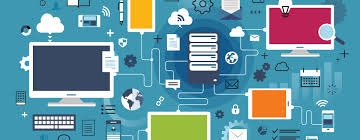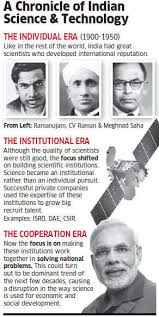The Impact of Science and Technology on Modern Society
Science and technology have profoundly transformed the way we live, work, and interact with the world around us. From healthcare advancements to communication breakthroughs, their influence is evident in nearly every aspect of our daily lives. This article explores some of the key areas where science and technology have made significant contributions.
Healthcare Innovations
One of the most remarkable impacts of science and technology is in the field of healthcare. Advances in medical research have led to the development of life-saving treatments and vaccines, significantly increasing life expectancy. Technologies such as MRI machines, robotic surgery, and telemedicine have revolutionised patient care, making it more efficient and accessible.
Communication Revolution
The way we communicate has been completely transformed by technological advancements. The internet has made it possible to connect with anyone around the globe instantly. Social media platforms allow for real-time sharing of information, while video conferencing tools enable remote work and virtual meetings. These technologies have not only bridged distances but also facilitated cultural exchange and collaboration on a global scale.
Environmental Monitoring
Science and technology play a crucial role in understanding and addressing environmental challenges. Satellite imagery, climate modelling, and data analytics are used to monitor environmental changes and predict future trends. Renewable energy technologies like solar panels and wind turbines are helping reduce our reliance on fossil fuels, paving the way for a more sustainable future.
The Future of Education
The education sector has also benefited from technological innovations. E-learning platforms provide access to quality education for students worldwide, regardless of their geographical location. Virtual reality (VR) and augmented reality (AR) are being used to create immersive learning experiences that enhance understanding and retention.
Challenges Ahead
While science and technology offer immense benefits, they also present challenges that need addressing. Issues such as data privacy, cybersecurity threats, and ethical concerns regarding artificial intelligence require careful consideration as we continue to integrate these technologies into our lives.
Conclusion
The fusion of science and technology continues to drive progress across various sectors, shaping a future that promises even greater advancements. As we navigate this rapidly changing landscape, it is essential to harness these innovations responsibly to ensure they benefit society as a whole.
Exploring Key Questions in Modern Science and Technology: From AI to Gene Editing
- What is artificial intelligence and how does it work?
- How do self-driving cars operate and are they safe?
- What are the latest advancements in renewable energy technologies?
- How does blockchain technology ensure data security?
- What impact will 5G technology have on communication networks?
- Can gene editing technologies like CRISPR revolutionise healthcare?
- How is virtual reality being used in various industries?
What is artificial intelligence and how does it work?
Artificial intelligence (AI) refers to the development of computer systems that can perform tasks typically requiring human intelligence, such as visual perception, speech recognition, decision-making, and language translation. At its core, AI works by processing large amounts of data through algorithms to identify patterns and make predictions or decisions. Machine learning, a subset of AI, involves training models with data so they can improve their performance over time without explicit programming. Neural networks, inspired by the human brain’s structure, are often used in AI to enable deep learning, allowing machines to recognise complex patterns and solve intricate problems. As AI technology advances, it is increasingly being integrated into various applications across industries, enhancing efficiency and enabling new capabilities.
How do self-driving cars operate and are they safe?
Self-driving cars operate using a combination of advanced sensors, cameras, radar systems, and artificial intelligence algorithms to perceive their surroundings, make decisions, and navigate roads autonomously. These vehicles rely on real-time data analysis to detect obstacles, interpret traffic signs and signals, and adjust their speed and direction accordingly. Safety is a top priority in the development of self-driving cars, with rigorous testing and continuous improvements aimed at reducing the risk of accidents. While self-driving technology has shown great promise in improving road safety by eliminating human error, ongoing research and regulatory measures are essential to ensure that these vehicles meet stringent safety standards and can coexist safely with traditional vehicles on the road.
What are the latest advancements in renewable energy technologies?
The latest advancements in renewable energy technologies have been transformative, offering promising solutions to address the pressing challenges of climate change and sustainability. Innovations such as floating solar farms, next-generation wind turbines with increased efficiency, and advanced energy storage systems using cutting-edge battery technologies are revolutionising the renewable energy sector. Additionally, breakthroughs in solar panel design and materials, as well as the development of smart grid technologies for efficient energy distribution, are shaping a more sustainable and greener future for our planet. These advancements underscore the ongoing commitment to harnessing clean and renewable sources of energy to reduce carbon emissions and mitigate the impacts of climate change.
How does blockchain technology ensure data security?
Blockchain technology ensures data security through its decentralised and immutable nature. When data is stored on a blockchain, it is distributed across a network of computers, making it nearly impossible for any single entity to control or manipulate the information. Each block in the chain contains a unique cryptographic hash that links it to the previous block, creating a secure and tamper-proof record of transactions. Additionally, consensus mechanisms such as proof of work or proof of stake validate new transactions, further enhancing the security of the data stored on the blockchain. By removing central points of failure and establishing trust through transparency and encryption, blockchain technology offers a robust solution for safeguarding sensitive information in various industries.
What impact will 5G technology have on communication networks?
The advent of 5G technology is set to revolutionise communication networks, offering unprecedented speed, reliability, and connectivity. With its significantly faster data transfer rates and lower latency, 5G has the potential to transform how we communicate and interact in the digital world. Enhanced mobile broadband capabilities will enable seamless streaming, high-quality video calls, and faster downloads, while supporting the proliferation of Internet of Things (IoT) devices. The increased network capacity and efficiency of 5G technology are expected to pave the way for innovative applications such as autonomous vehicles, smart cities, and augmented reality experiences. Overall, 5G technology is poised to redefine communication networks by enabling a more interconnected and efficient digital ecosystem.
Can gene editing technologies like CRISPR revolutionise healthcare?
The question of whether gene editing technologies like CRISPR can revolutionise healthcare has sparked significant interest and debate within the scientific community. CRISPR, with its precision and efficiency in editing genetic material, holds immense potential for treating genetic disorders, developing personalised medicine, and advancing our understanding of complex diseases. While the technology offers promising possibilities for targeted therapies and disease prevention, ethical considerations, regulatory challenges, and potential unforeseen consequences must also be carefully navigated. As research in gene editing progresses, the impact of CRISPR on healthcare could indeed be transformative, paving the way for innovative treatments and improved patient outcomes in the future.
How is virtual reality being used in various industries?
Virtual reality (VR) technology is being increasingly utilised across various industries to revolutionise the way tasks are performed and experiences are delivered. In the healthcare sector, VR is used for medical training simulations, patient therapy, and even surgical procedures. In architecture and real estate, VR allows clients to experience virtual walkthroughs of properties before they are built. The automotive industry employs VR for designing vehicles and testing safety features. Additionally, in education, VR enhances learning by providing immersive experiences that engage students in interactive simulations and virtual field trips. These examples demonstrate the diverse applications of VR technology in enhancing efficiency, creativity, and engagement across different sectors.



